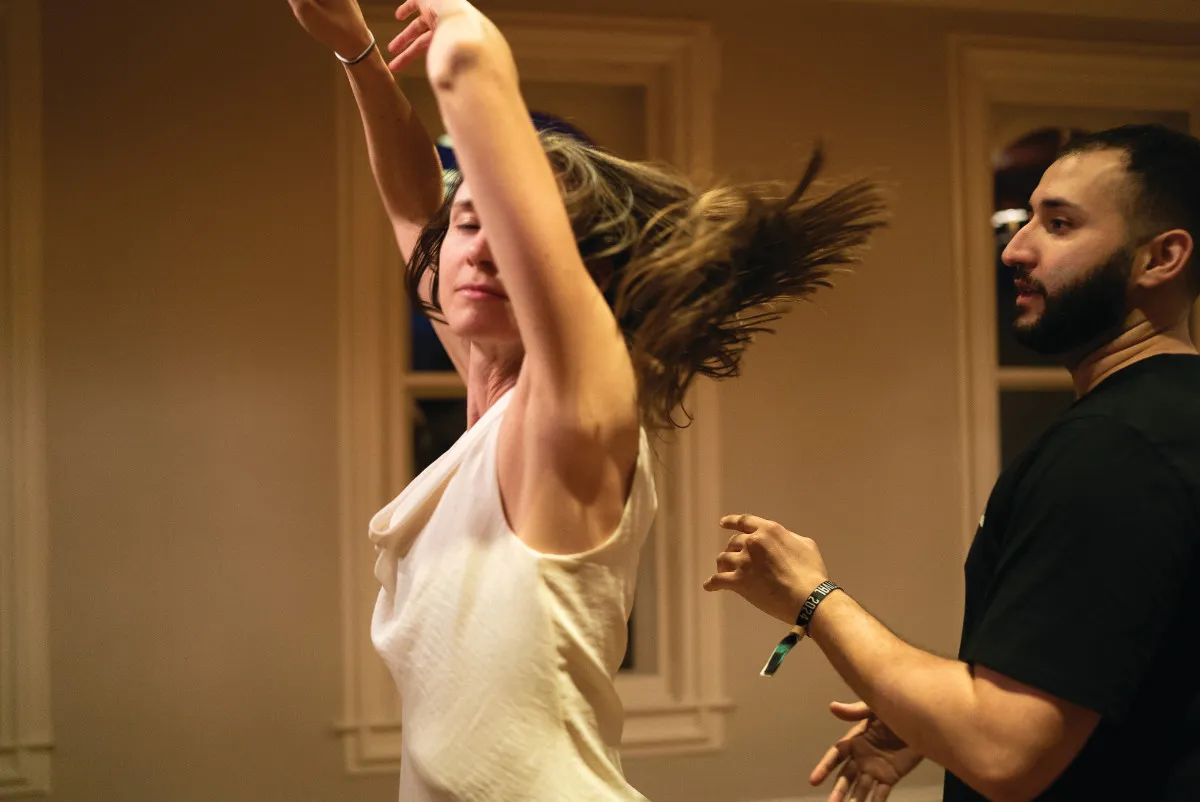This article was originally published in Little Village, an independent publication covering Iowa music, theatre, dining, nightlife, community news and the arts since 2001.
One of the most popular contemporary partner dances was almost stifled out of existence at the end of the 20th century.
“When people say Lambada, people think, ‘Oh, the forbidden dance?’ That is the first thing that comes to mind for people. And that’s a very wrong idea, actually, because it’s a sensual dance, but it’s not a sexual dance,” explained dancer Gabriel de Carvalho.
“Basically, Lambada was a big hit in the ’80s and ’90s in Brazil. The dancers produced the music. The big record companies started to boycott because they didn’t own the rights. It was this whole movement of ‘how are we gonna suppress this culture?’ There were events sponsored by the big record labels, ‘The Death of Lambada.’ They literally controlled the market. They had the radio. Radio was a very strong part of music, especially in Brazil, because we didn’t have streaming services. How do you get your music? Especially in a third world country? MTV? No, it’s the radio.”
Radios restricted the public’s access to Lambada music. Fortunately, Brazilian culture has a long history of resiliency. The so-called “Death of Lambada” became another adversity to overcome, and dancers did so by incorporating new music and moves.
“It was more of a necessity to find music that you could use to dance to. But with that also came this big variety,” de Carvalho said. “Like, I can dance to Kizomba. Oh, I can dance with some Cabo Verde music, it’s really similar to that tempo. Oh yeah, I can dance to Reggaetón.”
“We always say that it’s like we have the mother and daughter,” he added. “Lambada is the mother. Zouk is the daughter.”
It was this decentralizing and embracing of multiple musical genres, Caribbean Zouk in particular, that informed the development of Brazilian Zouk. And, of course, the dancers behind the moves — no one more than “Queen of Zouk Lambada” Renata Peçanha, who many credit with creating the style.
GABRIEL DE CARVALHO“For me, I want to be able to have the sense of community that I experienced in Brazil to exist here.”
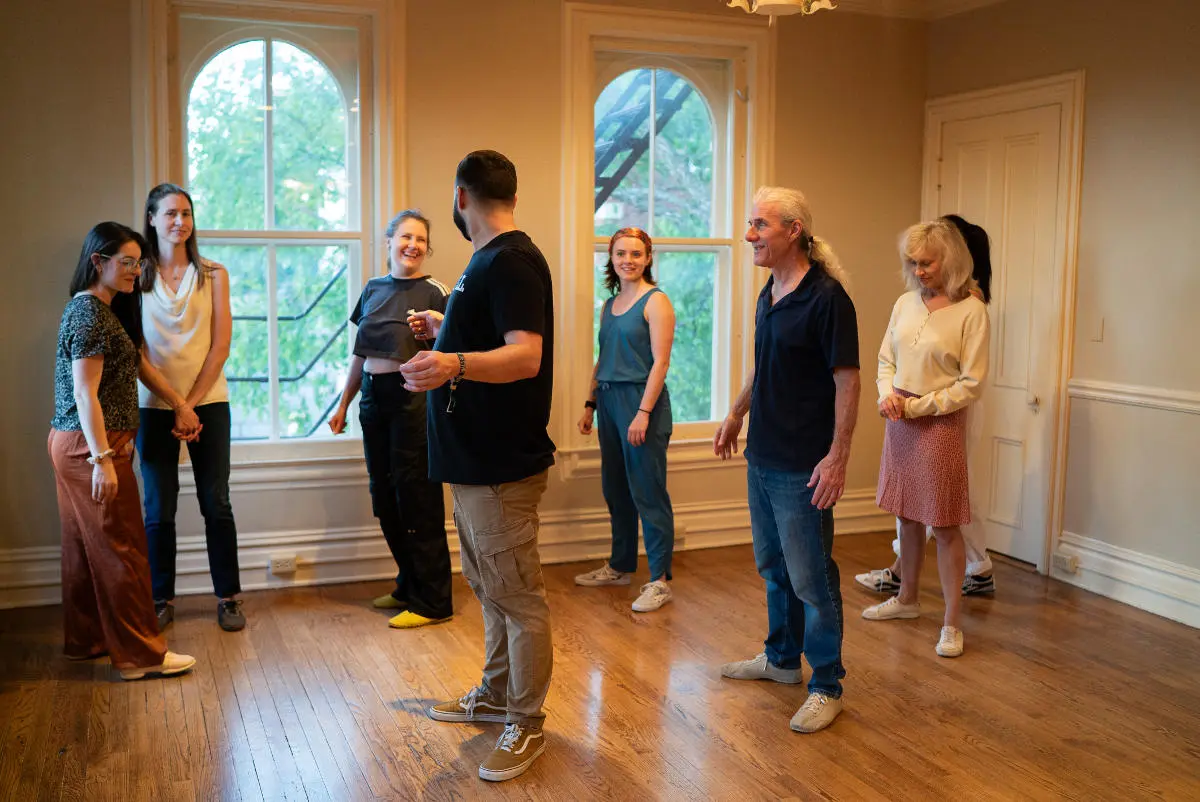
“She had so much love for the dance that she was like, I cannot let this dissolve. So she and other teachers started to do a movement to migrate from the name of Lambada to a different form, but it’s still preserving that way of dancing.”
De Carvalho joined Peçanha’s dance company and immersed himself in her teachings for more than a decade. With fellow dancer Verity Rose, the pair are perhaps the most prolific Zouk practitioners and instructors in Iowa.
The two ended up in Iowa, both attracted by the state’s nascent Zouk scene. Gabriel arrived right before the pandemic, when that scene, like so many other artistic landscapes, was almost extinguished. “We officially met for the first time in February 2020 at a Zouk event in Minneapolis,” says Rose of how the pair first met. “In Spring 2021 Gabriel said he had a student wanting to train to get to a pro level in Zouk and asked if I’d be interested in moving to Iowa City to train. It was a dream come true, and while that opportunity fizzled quickly, I felt called to stay to help build the Zouk community here in Iowa and grow myself as a dancer. These are still two of my biggest dreams.”
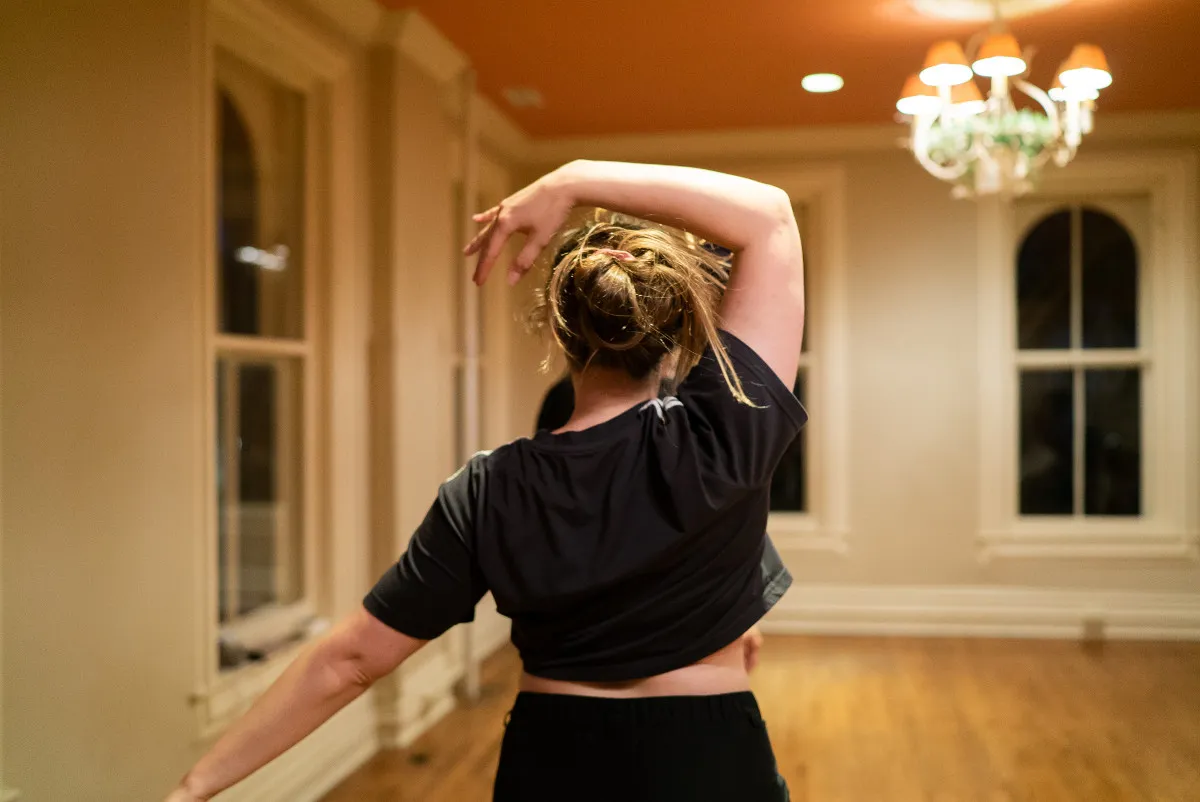
Today, they both consider themselves full-time Zouk professionals, Rose focusing on organizing local events and becoming a pro Zouk artist while de Carvalho regularly travels the Midwest to teach classes.
“You’ll see some elements of [a wide variety of dances] within Brazilian Zouk,” Rose said. “It’s really a beautiful mix and if you take a class in Samba de Gafieira, Bolero, Forro, if you take a Soltinho class, you’ll see these elements that are in Zouk. So it’s like a whole history within one dance. Not only that, you can dance it to almost anything. You can dance it to hip hop, R&B, soul, you can dance it to salsa.”
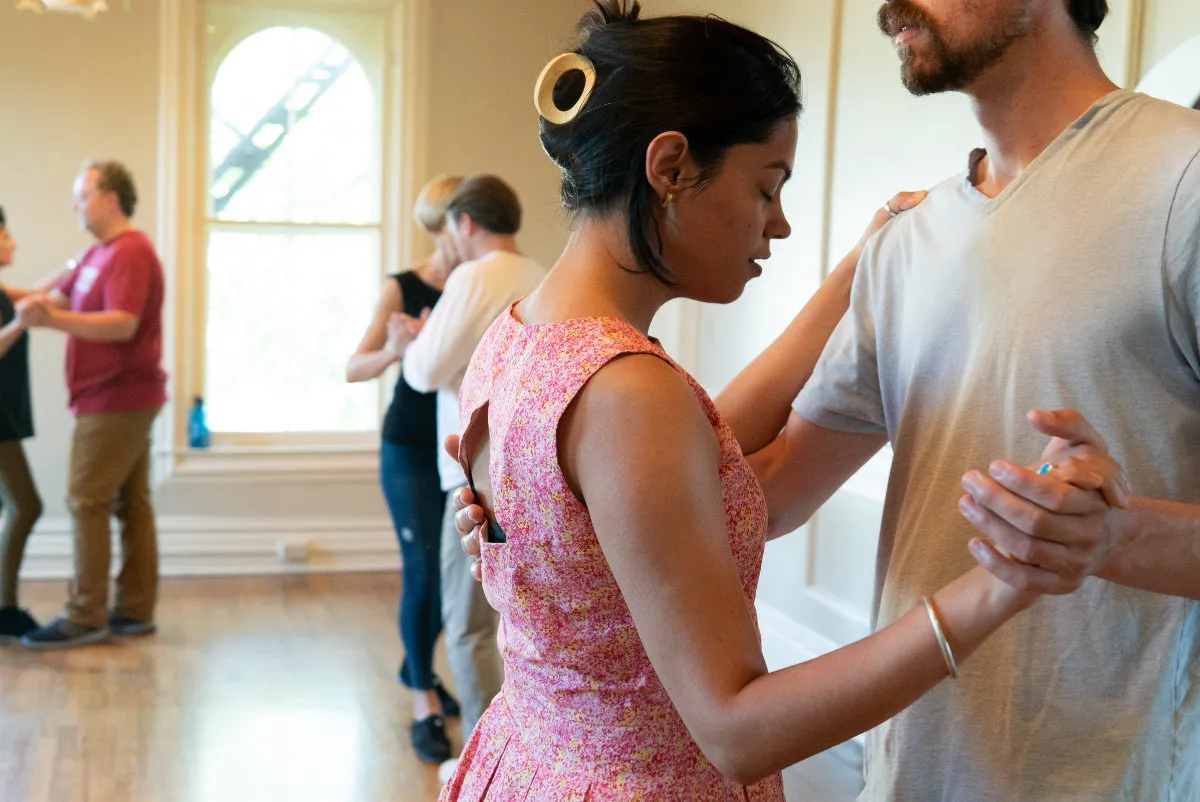
This musical versatility was on display at a beginner session Rose held at Iowa City’s Public Space One the day before our interview. After a warm-up we were asked to self-identify as either leaders, or followers. The musical genres flipped with each track as followers paired with leaders. As we learned the “abertura frontal” (literally translated as the opening frontal step), Rose asked the followers to move on to the next leader while she added more cues to our basic step, and so on.
I can be a bad follower. At one point, I took the lead and tried to zig when my leader wanted me to zag. It is a rookie mistake that we both laugh at. Then the song changes and the followers are whisked away to our next leader.
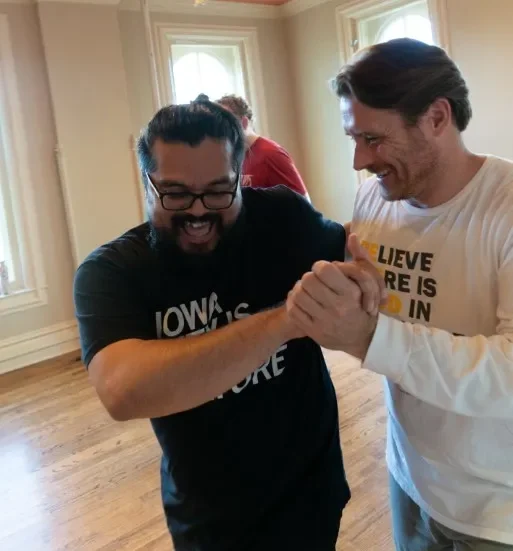
As I moved from partner to partner, holding hands in the “open position” taught to us, I realized that this was the first dance class I’ve taken since the pandemic. The first class where it felt, for me, comfortable touching someone else in the ways that we were.
That Rose was able to sustain the programs and community she built around Zouk throughout the pandemic is a testament to her dedication to the art form. A lifelong dancer, Rose didn’t discover Zouk until the 2019 FUZE Afro Latin Dance Festival in Iowa City.
“I just remember seeing the dance and not understanding it. It’s very interesting to me because I’m usually able to see those patterns. It was just the 3D-ness of it, you know? You’re not just working with the X and Y planes, you’re working with the Z plane,” she said.
It wasn’t until later, when she got some instruction that it clicked for her. “In that class, I thought, OK, this is it. This is my dance. I’m just hooked on it now. It’s like, that’s my heart.”
This love held the scene together, and eventually led me to Rose’s own beginner class.
“Zouk has taught me more about myself than any other social dance has,” she said. “It opened up other worlds for me as well. I was organizing events, teaching and developing myself as an artist. But I found a knack and a passion for event organizing.”
The goal, de Carvalho said, is to not only see Zouk Lambada develop a life of its own in Iowa.
“For me, I want to be able to have the sense of community that I experienced in Brazil to exist here,” he said. “And that I don’t need to be here for things to work. That it’s self-sustaining. That is my big dream.”
